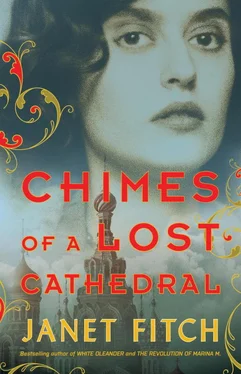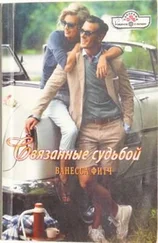“Think of being able to go to work without worrying about your kids,” I blurted out. “Without paying half your earnings to some crazy old person who waters the milk. That’s what she’s talking about.”
The speaker almost toppled with gratitude that someone understood what she was trying to say. “Thank you, that’s exactly right.”
“But what if they beat my kid?” asked the woman perched on the windowsill. “He’s a brat but I wouldn’t want no stranger beating him.”
“Nobody’s going to beat your child, Comrade. Abusing children is reactionary. We must never beat our children. Any other questions?” She looked around desperately, hoping someone would ask a question about the woman’s place in future society.
“But what if they did?” insisted the woman. Now I recognized her, she was one of those busybodies in the queues who had wanted to know all about Korsakova’s daughter.
I couldn’t keep my mouth shut. “Well, what if you beat your own child? Is that any better?” There must have been something I didn’t know about this woman, for the hall erupted in laughter.
“Well, it’s my kid, ain’t it?” she said defensively. More laughter followed.
“That’s the point, Comrade,” Sergeevna jumped in enthusiastically. “It’s not your child—that’s done. My child, your child, that’s the capitalist way—I take care of my children, make sure they have everything I can possibly give them, but to hell with your child, even if it’s starving, freezing, crying on the side of the road. My child, my property. What if my husband thinks of me that way? I can beat her, she’s my property, just like my horse. ”
“I’d like to see him try,” whispered my seatmate. “I bet she rules that roost. I bet he has to sing for his supper.”
“In socialist society, we’ve gone beyond all that.” She pointed again to the poster, CHILDREN ARE EVERYONE’S RESPONSIBILITY. “Our children belong to all of us. We all have a stake in the future of the working class. Socialism’s job is to lessen your burden, so you can make your contribution, knowing your child is properly cared for, not running around loose on the street or in the hands of whatever provision you can make. You are valuable to us, and so is your child.”
My seatmate whispered, “I wouldn’t give her a chicken to raise.”
“I don’t know. I could use the help,” I said.
She patted my arm. “Wait until you have the baby. Then you’ll see. Mothers aren’t going to give up their children without a fight.”
I couldn’t bear the stubborn stupidity of the woman. “But wouldn’t it be nice to know you could live your life without worrying, Oh, if I leave my man, what will I do with my children? You wouldn’t be such a slave.” Like a tethered cow.
“And maybe pigs will fly,” the woman told me. “And shit bacon.” Laughter all around us.
Sergeevna raised a hand to quell our un-Soviet mirth, and went on to read from another pamphlet, about a woman’s duty to have children to strengthen the working class. Clearly written by a man, for what woman ever decided to have children out of responsibility to the collective?
In response, I felt the baby flutter within me like a flag, deep inside my body. Just a flutter, like a butterfly or a rustle in the trees. The revolutionary words had stirred it. “It’s moving,” I whispered. The woman smiled. The baby was telling me that it was ready for this new world. Girl or boy, it would grow up into a very different world than any of us could imagine. A brave girl, maybe, a real firebrand.
At last it was over and we rose to return to our homes. Sergeevna stopped me at the door, shook my hand. “Thank you for coming. I so appreciate having someone who understands what we’re trying to do here.”
I shook her hand and pretended I’d rarely spent a more fascinating interlude after a twelve-hour workday. “Women in the future will have more to live for.”
She released my hand. She leaned toward me. “Perhaps you’ll help us, a poet like yourself. We could use some slogans. ‘Women, Take Care of Everyone’s Children,’ something like that. See if you can think of some. See you Friday.”
The idea that there would be a Friday, and slogans, and Sergeevna on a returning basis, turned me to stone. The clamminess of her hand. The tremulous smile with which she regarded me. I hated people who had plans for me, even if it was with the best intentions. I could see her Bolshevik wheels turning. Maybe I could be roped into teaching literacy classes, or saddled with babysitting duties. My back ached, my legs, I wanted Liza to rub them, and I had to pee like a typhoon. “Thank you, Comrade. I’ll see what I can do.”
“And don’t forget your maternity ration,” she added.
Lord knew I wouldn’t forget that.
After many advances and retreats, spring’s troops at last broke winter’s lines. Ice cracked in violent retorts on the Tikhvinka. It put everyone on edge, it sounded so much like gunfire. Admiral Kolchak, the head of the White Army, had emerged from his Siberian stronghold and smashed through the Urals. Kolchak was on his way. The railwaymen knew everything, what a relief to have access to the news again!
Styopa Radulovich and I lay in his bed in his single room at the end of the second-floor corridor—the room I’d begun to visit at the very end of my endless day. I had sworn I’d stay away from him, but had finally succumbed to the pleasure of a man’s body up against mine, his rich, loamy smell, his kindness. His easy silences. He reminded me I was still young, still desirable. I was already pregnant, he couldn’t do me any harm on that account, and I was lonely. He was modest in his sexual needs. It was wonderful just to have someone to talk to. When he wondered at the scarring on my back, the Archangel’s souvenir, I told him it was something I didn’t want to discuss, and he let it go.
After making love, knowing I liked it, he propped his map of Russia up against the blanket and traced the progress of the White advance for me with his one hand, scattering cigarette ash over the soft paper and the blanket like a weather report of light snow. It was better than any newspaper—especially now that only Bolshevik papers remained, where even defeats were presented as victories, or drumbeats to inspire further effort. But Vikzhel had the telegraph, they knew which trains carried troops and how many, where they were now and which way they headed.
I ran my finger along the eastern front, where Admiral Kolchak and his Siberian Cossacks had broken through the Urals. They’d just taken Ufa, the stronghold of Komuch, the Committee of Members of the Constituent Assembly—my father’s people. But now it was just Kolchak, monarchy, and reaction. So much for liberalism. “Voted themselves out of office, and next day the Supreme Leader and his Cossacks marched in singing ‘God Save the Tsar,’” said Styopa. I traced the long jagged line to the west of the mountain range that separated Asia from Europe, the Kolchak front. Every day, the Whites moved twenty-five, thirty miles closer to the Volga. It wouldn’t be long until they took Samara and Kazan, on their way to Moscow.
I traced my finger down to the Denikin forces in the Don. Denikin’s troops, reaction and pogrom. And my brother Volodya, whatever he was doing now. “Will Kolchak and Denikin join up?”
“They’ll try,” he said.
I nested my head on his shoulder, the one without the arm. He was always careful to conceal the stump, wore a nightshirt, that sleeve neatly knotted. His smell was of machines, of oil and cinders. “We’re losing, aren’t we?”
Читать дальше












